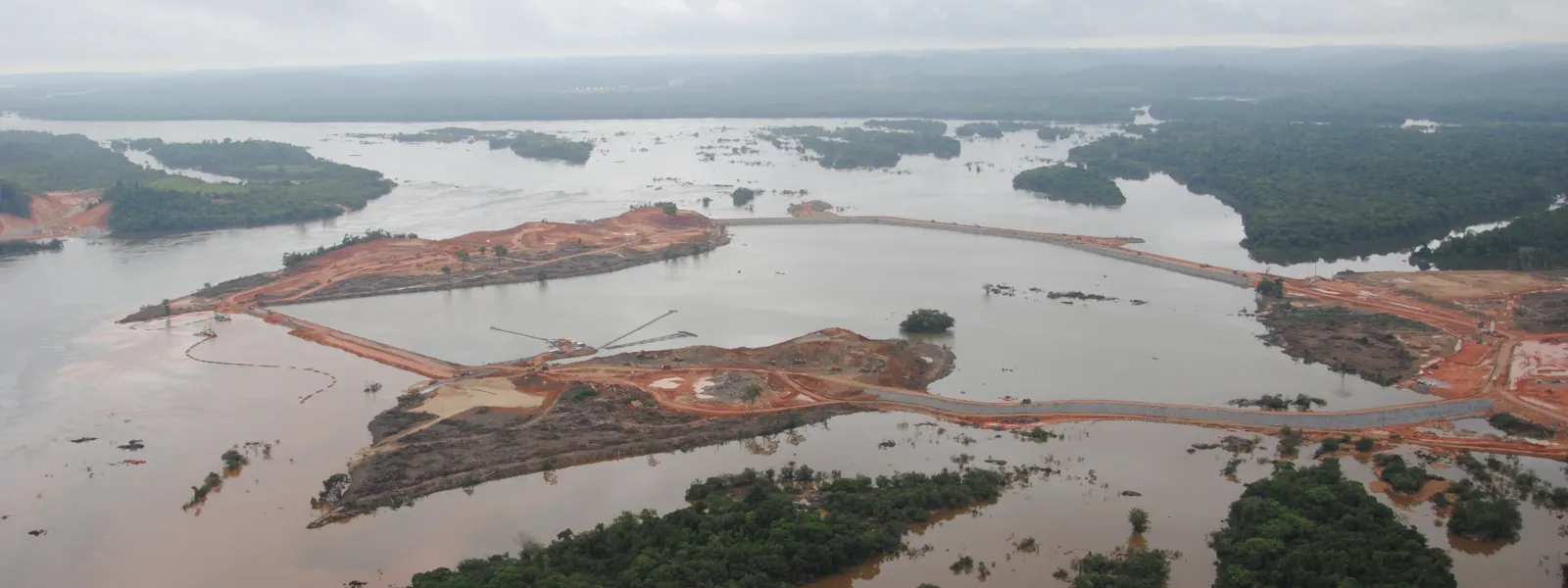
Project
Programa de Aceleração do CrescimentoHalting the implementation of large dams in the Americas
The more we learn, the clearer it becomes that large dams are unsustainable energy sources.
From the Mexican highlands to the Amazon River basin, hydroelectric mega-projects are aggravating climate change, destroying sensitive ecosystems, and threatening human rights and indigenous cultures.
In October 2016, a research study from Washington State University found that the world’s reservoirs generate 1.3 percent of all greenhouse gases (more than the total emissions of Canada!), confirming the damage dams do to our climate.
Large dams have no place on our rapidly changing planet. In a time of intensifying droughts, many vulnerable hydropower-dependent countries are facing energy shortages. And as extreme weather events increase around the world, the inherent danger of large dams becomes more evident.
Throughout the construction of Belo Monte, the world’s third largest dam, we’ve seen firsthand the grave impacts these projects have on the ecosystems in which they’re built. We’ve witnessed the violations they impose on the rights of indigenous and riverine communities, whose culture and livelihoods are tied so closely to the natural world.
Yet, across Latin America and the world, large dams are still being promoted as “clean and green” energy sources; and are even receiving support from national and international climate initiatives.
That support is part of the reason more than 3,700 large dams are currently being planned or constructed worldwide, more than 400 of which have been proposed for the vital Amazon River Basin.
At AIDA, we’re proud to be part of a team leading the fight against large dams across Latin America and beyond.
Partners:
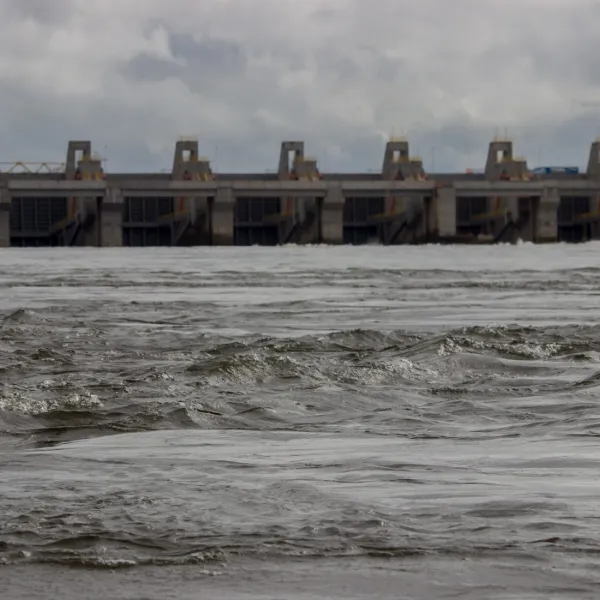
Related projects
Latest News
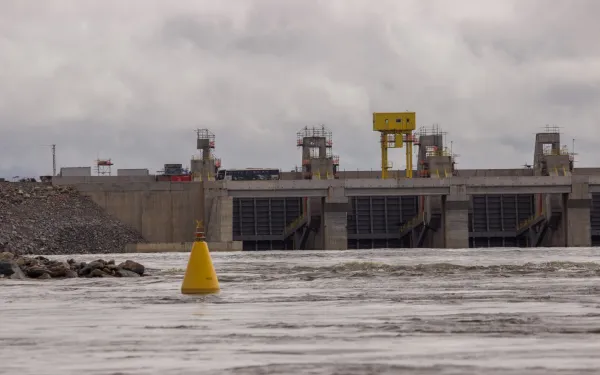
New study confirms large dams to be a principle source of greenhouse gas emissions
Researchers from the Washington State University found that the world’s reservoirs generate 1.3 percent of all greenhouse gases produced by humankind. The finding confirms once more than large dams are unsustainable energy sources that cause great harm to the climate. Seattle, United States. An important new study by researchers at the Washington State University found that large dams are an “underestimated” source of greenhouse gas. The findings show that all reservoirs, not only those built in tropical zones, release far greater quantities of emissions into the atmosphere than previously believed. According to the study, gases are released from the decomposition of organic matter after artificial reservoirs flood natural areas. In fact, over the course of a year reservoirs were found to generate 1.3 percent of the world’s greenhouse gases (more than all of Canada). Eighty percent of those emissions were methane, a pollutant 34 times stronger than carbon dioxide. “Across the Americas, governments are pushing for the construction of hundreds of new large dams, arguing that dams are clean energy and will help to mitigate climate change,” explained Astrid Puentes Riaño, co-director of the Interamerican Association for Environmental Defense (AIDA). “It’s become increasingly clear that large dams are more of a problem than a solution. World leaders must urgently start to plan and implement alternative energy solutions in order to achieve real progress in the fight against climate change.” Along with a coaltion of civil society organizations, AIDA, Amazon Watch and International Rivers have been insisting for years that operating large hydroelectric projects—such as the Belo Monte Dam in Brazil—causes severe damage to the environment, the climate, and the rights of affected communities. “Large dams are one of the most significant causes of environmental destruction in the Amazon,” said Leila Salazar-López, executive director of Amazon Watch. “In addition to emiting methane, they destroy biodiversity and the ancestral forest of thousands of indigenous and traditional communities that have lived for centuries from river ecosystems. It is imperative to calculate the true costs of large dams to understand all their impacts, and avoid causing more harm than good.” As organizations working to promote real solutions to climate change, we are committed to sharing scientific evidence about the harms of large dams to governments, international bodies, and financial institutions. "The new findings lay to rest the myth of hydropower as a clean source of electricity and underline why large hydropower should not receive climate finance," said Kate Horner, executive director of International Rivers. The results of Washington State University's study must be considered in the inventory of emissions that contribute to climate change, as well as in the execution of program and plans aimed at solving energy needs. For more information consult: Washington State University's study. Washington State University’s press release on the study. Short video from Astrid Puentes Riaño, AIDA co-director, with a brief explanation of the research and why it is important. Our Manifesto on 10 reasons why climate initiatives should not include large dams. An open letter to governments, international institutions and financial mechanisms to stop considering large dams as clean energy and to implement real solutions to climate change.
Read more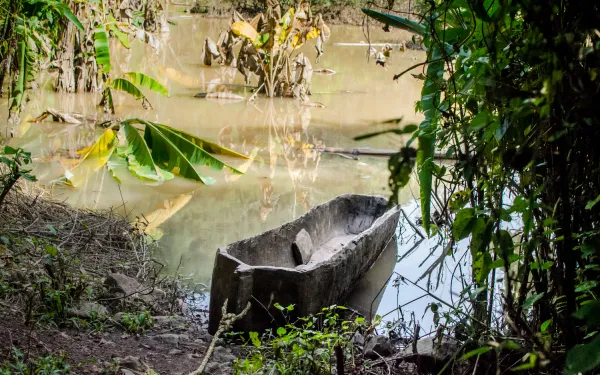
Letter to the President of Panama on Test Flooding in Barro Blanco Hydroelectric Project
AIDA and other organizations sent an open letter to Juan Carlos Varela Rodríguez, President of the Republic of Panama. We urge him to protect life and integrity of the Ngäbe communities and to immediately suspend the test flooding in the Barro Blanco Hydroelectric Power Plant Project which is violating their rights and placing them at risk of irreparable harm. Dear President Varela, We, the undersigned organizations, are deeply concerned for the personal safety and security of the Ngäbe communities, affected by the Barro Blanco Hydroelectric Power Plant Project. On May 22, Panama’s National Authority for Public Services (ASEP) announced in a press release that Barro Blanco’s reservoir would be filled[1], starting on May 24. ASEP’s press release indicated that the water would rise up to 103 meters above sea level by June 21, 2016. According to a fact finding mission led by the United Nations Development Programme in 2012[2], the Ngäbe communities of Kiad, Nuevo Palomar and Quebrada Caña will be directly impacted by the flooding. This report indicates that 6 hectares + 9816.86 m² of their lands, including 6 houses and a petroglyph located in the community of Quebrada Caña, will be under water. Furthermore, we have received reports from affected community members that floodwaters of the Barro Blanco reservoir have reached the limits of the Bakama Area (Corregimiento) of the Ngäbe-Bugle Territory (Comarca) in Western Panama. At this point, the Ngäbe communities of Quebrada Plata, Quebrada Caña, Kiad and Nuevo Palomar - as well as the Mama Tatda ceremonial sites - could be seriously harmed by the so-called test flooding this week, much ahead of the estimated June 21 peak level announced by ASEP. Contrary to what is stated by ASEP press release, and as confirmed by Milton Henriquez, Minister of Internal Affairs[3], the affected communities were not notified or consulted prior to the test flooding. This goes against international human rights standards, which stipulate that indigenous peoples have the right to consultation and free, prior and informed consent. As derived from the right to property protected under the American Convention on Human Rights and other agreements, indigenous peoples have also the right to adequate housing, to possess, use, and “freely enjoy” their traditional lands and territories, and to “not be forcibly removed” from them[4]. The Ngäbe communities are determined to stay and defend their sacred lands, regardless of the ongoing flooding. We urge you to protect their life and their integrity and to immediately suspend the test flooding which is violating their rights and placing them at risk of irreparable harm. [1] http://www.panamaamerica.com.pa/economia/asep-anuncia-el-inicio-del-periodo-de-prueba-de-central-hidroelectrica-barro-blanco-1027251 [2] http://canal-empresarias.ciudaddelsaber.org/wp-content/uploads/2015/09/0-informe-mision-verficacion-final-20121219.pdf [3] http://www.mingob.gob.pa/mingob/inside.php?artID=3246 [4] For more information, please see http://www.ciel.org/Publications/BarroBlanco_Appeal_18Feb2014.pdf
Read more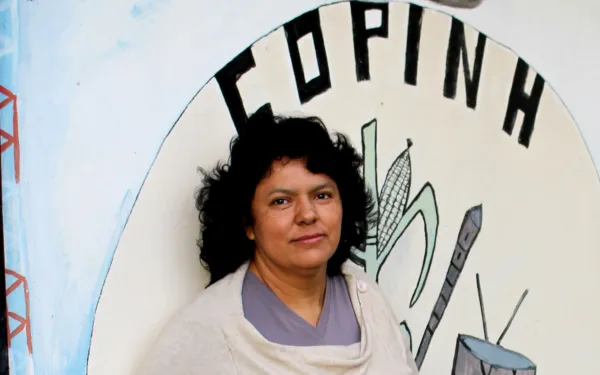
Correspondence with the World Bank Regarding Berta Cáceres and Large Dams
On May 11th, more than 300 organizations from around the world sent a letter to Dr. Jim Yong Kim, President of the World Bank, to respond to a statement he made during an event at the Union Theological Seminary in New York. In response to a question about the impacts of large dam projects as illustrated by the murder of Berta Cáceres in Honduras he stated, among other things, that “you cannot do the work we’re trying to do and not have some of these ‘incidents’ happen.” The organizations signing this letter consider these statements from the World Bank President unacceptable and urge him to immediately rectify his actions and make a public apology. Dr. Kim’s statement is available on video (minute 53). CONSULT the letter sent to the World Bank President in ENGLISH and SPANISH. On May 11th, the World Bank responded to the letter from organizations in a public brief on Honduras and indigenous peoples, which can be found on their website. On May 13th, a drafting committee from the coalition of organizations answered the World Bank, taking note of the President's condemnation of the murder of Berta Cáceres. The also noted that the reference the President of the World Bank made to the grave human rights violations caused by dams, such a involuntary displacement, is worrying and must be addressed. They reiterated the existence of alternatives to large hydroelectric projects and the need to implement such solutions. The organizations concluded: "In honor of your commitment to “hear the voices of the Berta Caceres of the world” we look forward to the World Bank Group moving towards energy alternatives that are respectful of the human rights of people and communities; that are more efficient, less expensive and actually respectful of the planet. That is the main way to achieve real prosperity for all."
Read more